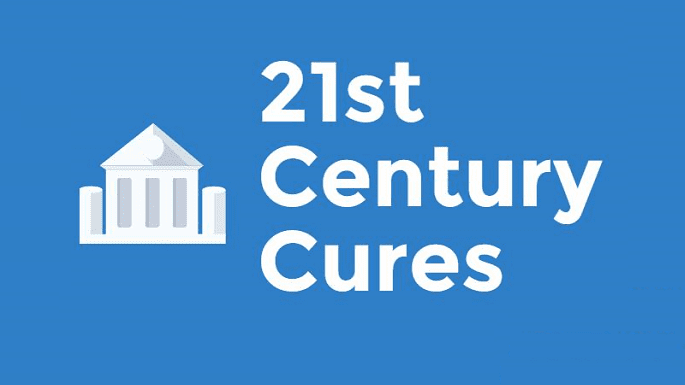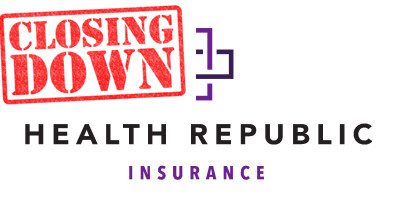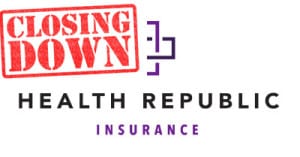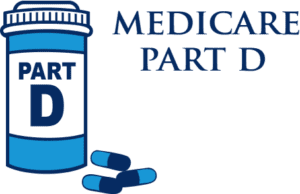
by Alex | Dec 15, 2016 | individual health insurance
21st Century Cures Act Passed
On Tuesday The 21st Century Cures Act Passed and signed by President Obama. The ‘Act” has numerous components but the the greatest impact on small business is the HRA ( health reimbursement arrangement) component.
The Cures Act allows small employers to reimburse individual health coverage premiums up to a dollar limit through HRAs called “Qualified Small Employer Health Reimbursement Arrangements” (QSE HRA). This provision will go into effect on January 1, 2017.
The IRS previously limited Employer reimbursement of individual premiums in light of the requirements of the Patient Protection and Affordable Care Act (ACA). For many years, employers had been permitted to reimburse premiums paid for individual coverage on a tax-favored basis, and many smaller employers adopted this type of an arrangement instead of sponsoring a group health plan. However, these “employer payment plans” are often unable to meet all of the ACA requirements that took effect in 2014, and in a series of Notices and frequently asked questions (FAQs) the IRS made it clear that an employer may not either directly pay premiums for individual policies or reimburse employees for individual premiums on either an after-tax or pre-tax basis. This was the case whether payment or reimbursement is done through an HRA, a Section 125 plan, a Section 105 plan, or another mechanism.
Who is eligible?
The Cures Act now allows employers with less than 50 FT employees (under ACA counting methods) who do not offer group health plans to use QSE HRAs that are fully employer funded to reimburse employees for the purchase of individual health care.
What are the funding limits?
The reimbursement cannot exceed $4,950 annually for single coverage, and $10,000 annually for family coverage. The amount is prorated by month for individuals who are not covered by the arrangement for the entire year. Practically speaking, the monthly limit for single coverage reimbursement is $412, and the monthly limit for family coverage reimbursement is $833. The limits will be updated annually.
Impact on Individual Subsidy Eligibility?
For any month an individual is covered by a QSE HRA/individual policy arrangement, their subsidy eligibility would be reduced by the dollar amount provided for the month through the QSE HRA if the QSE HRA provides “unaffordable” coverage under ACA standards.
Employees applying for coverage on federal or state health insurance exchanges will need to disclose the amount that the employer is making available via the HRA. That amount will be used by the exchange in calculating whether an employee’s household income exceeds ACA affordability thresholds (2017 – 9.69 % of household income), as well as determining subsidy amounts for those that meet the eligibility requirements. Those employees eligible for a subsidy will have their monthly amount reduced by the monthly HRA amount available through their employer.
If the QSE HRA provides affordable coverage, individuals would lose subsidy eligibility entirely. Caution should be taken to fully education employees on this impact.
COBRA and ERISA Implications?
QSE HRAs are not subject to COBRA or ERISA.
Annual Notice Requirement?
The new QSE HRA benefit has an annual notice requirement for employers who wish to implement it. Written notice must be provided to eligible employees no later than 90 days prior to the beginning of the benefit year that contains the following:
- A statement to the employee that it is their responsibility to provide the federal or state health insurance exchange with the amount being provided in HRA funds, as this amount will be used by the exchange when calculating need based premium assistance.
- A statement that if the employee is not covered by minimum essential coverage for any month of the tax year, they could be subject to a penalty under the Individual Mandate provisions of the ACA.
Failure to provide this notice will result in a penalty to the employer of $50 per applicable employee, up to a $2,500 maximum per calendar year. Transition relief is available for plans starting in the first quarter 2017 – they will have until April 1, 2017 to provide notices to employees.
Record-keeping, IRS Reporting?
Because QSE HRAs can only provide reimbursement for documented healthcare expense, employers with QSE HRAs should have a method in place to obtain and retain receipts or confirmation for the premiums that are paid with the account. Employers sponsoring QSE HRAs would be subject to ACA related reporting with Form 1095-B as the sponsor of MEC. Money provided through a QSE HRA must be reported on an employee’s W-2 under the aggregate cost of employer-sponsored coverage. It is unclear if the existing safe harbor on reporting the aggregate cost of employer-sponsored coverage for employers with fewer than 250 W-2s would apply, as arguably many of the small employers eligible to offer QSE HRA’s would have fewer than 250 W-2s.
Individual Premium Reimbursement Prohibitions
Outside of the exception for small employers using QSE HRAs for reimbursement of individual premiums, all of the prior prohibitions from IRS Notice 2015-17 remain. There is no method for an employer with 50 or more full time employees to reimburse individual premiums, or for small employers with a group health plan to reimburse individual premiums. There is no mechanism for employers of any size to allow employees to use pre-tax dollars to purchase individual premiums. Reimbursing individual premiums in a non-compliant manner will subject an employer to a penalty of $100 a day per individual they provide reimbursement to, with the potential for other penalties based on the mechanism of the non-compliant reimbursement.
For analysis if this works for your small business? Please contact our payroll and reimbursement team on your HR/Payroll/Compliance needs at Millennium Medical Solutions Corp (855)667-4621 for immediate answers.

by Alex | Dec 10, 2015 | NY News, Obamacare, Small Business Group Health

Aftermath of Health Republic Shut Down
The article below summarizes in full the Aftermath of Health Republic Shut Down. The original NYS announcement to shut down Nov 30th was released on Friday October 30th. There are countless anecdotal evidence of our client’s Providers not getting paid for work already done this Fall. Brokers , our Agency included, has NOT been paid since this Summer.
Should My Doctor and Broker be paid? That really ought to be the header for this article. At the same time Health Providers and Brokers honored clients despite the Health Republic’s precarious financial status. The approximate amount owed is $150 Million. If the State truly wants to correct this they have a $1Billion surplus. How can the State obligate Providers and Brokers to meet contractual licensing & professional standards and ignore them now?
As reported in Mahopac NY News 12/9/15 by BRETT FREEMAN
Doctors, Insurance Brokers Could Lose Millions After Health Republic’s Collapse
HUDSON VALLEY, N.Y. – When Health Republic Insurance of New York announced early last month that they were ceasing operations at the end of November, individual subscribers and small groups had to scramble for other options to keep themselves and their employees insured.
Doctors and individual insurance brokers weren’t so lucky.
Often overlooked in news reports is how Health Republic’s demise affected thousands of medical providers and individual insurance brokers, who may never see a dime from all that is owed to them.
Sign Up for E-News
Health Republic was a not-for-profit health insurance co-op (Consumer Operated and Oriented Plan) established under the Affordable Care Act. According to its website, at its height, it had over 215,000 members, making it the largest new health insurance cooperative in the country.
According to articles linked on Health Republic’s website, it borrowed a $265 million low-interest federal loan to begin its operations and was one of 23 co-ops receiving a total of $2.4 billion. According to reports, about half of them have since failed, with many analyses pointing to the low premiums as the cause of their collapse.
Dr. Scott D. Hayworth, president and CEO of the Mount Kisco Medical Group (MKMG), estimates that his practice, which provides medical care to 500,000 patients in the Hudson Valley (including thousands of patients in Mahopac, Somers, Yorktown and North Salem), has lost millions of dollars due to the collapse of Health Republic.
“It’s more than just the doctors’ fees,” said Hayworth, who oversees 450 physicians in dozens of locations throughout the Hudson Valley. Dr. Hayworth said that insurance reimbursements cover vaccines, chemotherapy and other ambulatory and pharmaceutical products that were paid for out of pocket by MKMG.
Despite its losses, MKMG continued to honor its contract with the insurance carrier to ensure any patients covered by Health Republic would continue to receive medical care.
“The thing we all have to remember is there is a patient in the middle of this,” Hayworth said. “Our first obligation is to our patients.”
Other health care providers, including local hospitals, have been in the same boat as MKMG.
Putnam Hospital Center is owed $1.8 million, according to Marcela Rojas, the manager of public and community affairs. Health Quest, which is the parent company of Putnam Hospital Center, is owed $4.4 million in total and doctors throughout its three hospitals are owed $350,000.
“In meetings with state officials, a discussion has focused on how to recoup any of these payments owed to individual patients as well as hospitals, physicians and other providers,” Rojas said in an email interview this past Friday. “There is a discussion on restructuring Health Republic, but the question is, what assets, if any, remain? Recouping any funds may be both a federal and state matter. There is currently no guarantee, emergency or recovery fund in Washington or Albany to cover those losses. Hospitals are meeting with state legislators this week to discuss how best to proceed to recoup at least some of the money owed.”
Officials at Northern Westchester Hospital estimate that they will be owed $2 million due to nonpayment of services provided to Health Republic patients.
“We believe NWH will recover some unknown portion of that amount,” said Joel Seligman, president and CEO of Northern Westchester Hospital. “Under New York State law, NWH must continue to provide services to patients for 60 days where continuity and transitions of care are an issue. Northern Westchester Hospital has a robust financial assistance policy applicable to all patients, including former Health Republic patients.”
All of these healthcare providers are receiving guidance and advocacy from the Healthcare Association of New York State (HANYS), a non-profit statewide association representing hospitals, health systems, nursing homes, home care agencies and other providers across the state.
In an interview, Melissa Mansfield, associate director of public and media relations for HANYS, explained that other states have something called a guarantee fund, which operates as an insurance company for the insurance company.
“New York is one of the few that does not have one yet,” she said, adding that medical providers statewide are owed $160 million, not including what will be owed for care rendered during the month of November.
“HANYS is aggressively advocating on behalf of our members with Cuomo administration officials and CMS (Centers for Medicare & Medicaid Services) to secure payment for money owed by Health Republic,” Mansfield said. “HANYS is exploring all available options for immediate payment and pursuing the establishment of a guarantee fund as a way to protect providers for Health Republic claims and from future insolvencies. Our members are obviously concerned about the impact Health Republic’s shutdown has had on patients and are committed to providing care during this transition. However, HANYS continues to raise very serious concerns about the consequences of such a tremendous financial loss when hospitals are already financially fragile.”
In Putnam County, there were 4,241 Health Republic enrollees, according to HANYS. In Westchester County, there were 20,404 enrollees, making it the third-most impacted county in the state, behind Nassau and Suffolk counties.
In a recent interview, state Sen. Terrence Murphy, who represents Mahopac, Somers, Yorktown and North Salem, among other communities, expressed outrage at the collapse of Health Republic, calling it, “at a minimum, gross mismanagement and negligence. Where the hell was DFS?” Murphy asked, referring to the Department of Financial Services, the state agency that oversees various industries that operate in the state, including all insurance companies. Murphy said DFS should be investigated.
On Sept. 25, DFS directed Health Republic to cease writing new health insurance policies and announced that the co-op would commence an orderly wind down after the expiration of its existing policies. Weeks later, after a review of Health Republic’s finances, finding it in worse financial condition than the company previously reported in its filings, DFS and New York State of Health, which is the official agency administering the Affordable Care Act, ordered Health Republic to end all of its policies on Nov. 30.
A spokesman for DFS did not return a phone call seeking comment, but on its website, officials with DFS said they opened an official investigation last week on Health Republic’s inaccurate financial reporting.
“NYDFS investigators are collecting and reviewing evidence relating to Health Republic’s substantial underreporting to NYDFS of its financial obligations,” according to the statement. “Among other issues, the investigation will examine the causes of the inaccurate representations to NYDFS regarding the company’s financial condition.”
According to DFS, medical providers who contracted with Health Republic had been legally bound to provide healthcare through the expiration of a patient’s plan with Health Republic, regardless of their concerns about reimbursement.
“NYDFS is taking actions that will apply a New York State law that prohibits providers from collecting or attempting to collect from Health Republic consumers amounts that are owed by Health Republic,” a statement on the website said. In addition, according to the DFS website, doctors must honor all new insurance policies of patients who are in an ongoing course of treatment with a provider for a life-threatening or a degenerative and disabling condition or disease, or in the second or third trimester of pregnancy for up to 60 days or through the pregnancy.
All of this is good for the patients, but Murphy expressed worry about how some local doctors might fare with all the lost reimbursements.
“You have practices that might go belly up,” said Murphy, who is a chiropractor in addition to being a legislator. “This is going to be a disaster…You will see some of them go out of business.”
While Dr. Hayworth at MKMG expressed confidence that his medical group would continue to offer top-notch care for its patients, he said that healthcare is a narrow-margin business and lost reimbursements will affect his group’s ability to recruit the best and brightest physicians, who he fears might be lured to other states.
Hayworth, who is married to former Congresswoman Nan Hayworth, declined to comment on the politics of the Affordable Care Act, but he said there definitely needs to be insurance reform. He also called on Albany and Washington, D.C. to provide “legislative relief” to the medical providers impacted by Health Republic’s collapse.
Sen. Murphy, who is chairman of the Administrative Regulations Review Commission, said he respects the legislative process, which calls for other committees to work on the problem, but has shared his concerns with state Sen. Kemp Hannon, chair of the Health Committee, who has started up round table discussions to determine the next steps.
“Anything to make sure this never happens again,” Murphy said.
Assemblyman David Buchwald, who represents North Salem, is also working on the problem.
“I have heard from constituents who are doctors and are concerned that they will not be paid for the services they provided to Health Republic patients,” Buchwald said in statement. “I have worked to raise this issue in Albany while the legislature is not in session. Understandably, the most immediate concern is ensuring that people who had Health Republic insurance are transitioned as smoothly as possible to new insurance. This is important to both patients and doctors, so that at least people are insured and health providers get paid going forward. Next, New York will hopefully see to it that insurance companies have adequate financial resources and address the needs of health professionals who have been left holding the bag. I expect that work to begin as soon as Health Republic customers are transitioned to their new insurance.”
Assemblyman Steve Katz, who represents Mahopac, Somers and Yorktown, did not return a call seeking comment. Nor did Congressman Sean Patrick Maloney, who represents Mahopac, Somers and North Salem in the U.S. House of Representatives, and Congresswoman Nita Lowey, who represents Yorktown.
In addition to the health care providers, local brokers are also out of luck. Mahopac resident Robert Simone, a broker with INS Brokers Inc., said he is owed thousands of dollars from Health Republic for his September and October commissions.
In an attempt to recoup his commissions, he called Health Republic, which told him to call DFS.
“DFS said, ‘We have nothing to do with it. Health Republic is holding your money.” Simone said he is not optimistic.
Nor is Chris Radding, one of the owners of the Forbes Agency in Katonah. Radding said he had 22 employer groups who had been members of Health Republic and he had lost thousands of dollars in commissions when Health Republic folded.
“Anything I’ve seen, there is no mention of the broker,” Radding said. Both Radding and Simone emphasized that their priority was ensuring that their clients had health coverage.
“The whole thing is pretty frustrating and really kind of disgusting,” Radding said.
In a press release issued Monday, the New York State Association of Health Underwriters estimated that insurance brokers in New York State will have lost millions of dollars due to unpaid commissions.
“What’s needed is a solution that avoids the usual outcomes of a failed insurance carrier,” the release said. It listed the usual outcome as reduced payments or no payments to those who provided their professional services even after the carrier ceased reimbursement for those services. It also said the solution should not inflate future insurance premiums or increase New York residents’ tax burden.
“We think that we have such a solution,” the release said. “NYS recently announced the existence of a $1 billion surplus, $680 million of which was generated by penalties levied by DFS. New York State should use some of that surplus to pay everyone what they are owed—doctors, hospitals and insurance brokers—and NYS should also ensure that Health Republic enrollees who have selected a licensed insurance advisor will continue to benefit from their advice by directing succeeding carriers to automatically appoint those brokers when their clients accept an auto-enrollment offer.”

by admin | Sep 2, 2015

Private Exchange 2015
Private Exchange
What is an Exchange? One of the centerpieces of the recently passed Patient Protection and Affordable Care Act
(PPACA) is the establishment of state based health insurance exchanges by the year 2014.
An “Exchange” is a mechanism for organizing the health insurance marketplace to help consumers and small businesses shop for coverage in a way that permits easy comparison of available plan options based on price, benefits, service and quality. By pooling individuals and small groups together, transaction costs can be reduced and transparency can be increased. Exchanges can create more efficient and competitive markets for individuals and small employers.
Historically, the individual and small group health insurance markets have suffered from adverse
selection and high administrative costs, resulting in low value for consumers. “Exchanges” will
allow individuals and small businesses to benefit from the pooling of risk, market leverage, and
economies of scale that large businesses currently enjoy.
Beginning with an open enrollment period in 2013, Insurance agents and Benefits professionals
will help individuals and small employers shop, select, and enroll in high-quality, affordable
private health plans in these “Exchanges” to fit their specific needs at competitive prices.
Individuals in these “Exchanges” may also be eligible to receive premium subsidies through the
Federal or State government. By providing one-stop shopping, we will make purchasing health
insurance easier and more understandable through these “Exchanges” and provide the same level
of service that you have become accustomed to.
Middle-class people will be able to pick from a range of private insurance plans, and most people will be eligible for help from the government to pay their premiums.
Low-income people will be steered to safety-net programs for which they might qualify. This could be a problem in states that choose not to expand their Medicaid programs under a separate part of the health care law. In that case, many low-income residents in those states would remain uninsured.

Q: How will I know if I can get help with my health insurance premiums?
A: You’ll disclose your income to the exchange at the time you apply for coverage and they’ll let you know. Only legal residents of the United States can get financial assistance.
The health care law offers sliding-scale subsidies based on income for individuals and families making up to four times the federal poverty level, about $44,700 for singles, $92,200 for a family of four.
But do yourself a favor and read the fine print because the government’s help gets skimpier as household income increases.
For example, a family of four headed by a 40-year-old making $35,000 will get a $10,742 tax credit toward an annual premium of $12,130. They’d have to pay $1,388, about 4 percent of their income, or about $115 a month.
A similar hypothetical family making $90,000 will get a much smaller tax credit, $3,580, meaning they’d have to pay $8,550 of the same $12,130 policy. That works out to more than 9 percent of their income, or about $710 a month.
The estimates were made using the nonpartisan Kaiser Family Foundation’s online calculator. Some people will also be eligible for help with their copayments.
Final note: Though it’s called a “tax credit” the government assistance goes directly to the insurer. You won’t see a check.
Q: What will the benefits look like?
A: The coverage will be more comprehensive than what’s now typically available in the individual health insurance market, dominated by bare-bones plans. It will be more like what an established, successful small business offers its employees. Premiums are likely to be higher for some people, but government assistance should mostly compensate for that.
All plans in the exchange will have to cover a standard set of “essential health benefits,” including hospitalization, doctor visits, prescriptions, emergency room treatment, maternal and newborn care, and prevention. Insurers cannot turn away the sick or charge them more. Middle-aged and older adults can’t be charged more than three times what young people pay. Insurers can impose penalties on smokers.
Because the benefits will be similar, the biggest difference among plans will be something called “actuarial value.” A new term for consumers, it’s the share of expected health care costs that the plan will cover.
There will be four levels of coverage, from “bronze,” which will cover 60 percent of expected costs, to “platinum,” which will cover 90 percent. “Silver” and “gold” are in between. Bronze plans will charge the lowest premiums, but they’ll have the highest annual deductibles. Platinum plans will have the highest premiums and the lowest out-of-pocket cost sharing.
This part is insurance nerdy but an important point – The government’s subsidy will be tied to the premium for the second-lowest-cost plan at the silver coverage level that’s available in your area. You could take it and buy a lower cost bronze plan, saving money on premiums. But you’d have to be prepared for the higher annual deductible and copayments.
If you have additional questions regarding how SHOP Exchanges and Individual Exchanges can benefit you please contact our team at Millennium Medical Solutions Corp. Stay tuned for updates as more information gets released. We’re inside of 75 days until exchanges open, and information will be coming quickly in the next few months. Sign up for latest news updates.
Resource:

Click Above
Federal government health care site: www.healthcare.gov
Kaiser Health Reform Subsidy Calculator:http://healthreform.kff.org/subsidycalculator.aspx






















 NEW 2016 Oxford Metro Network NY
NEW 2016 Oxford Metro Network NY






